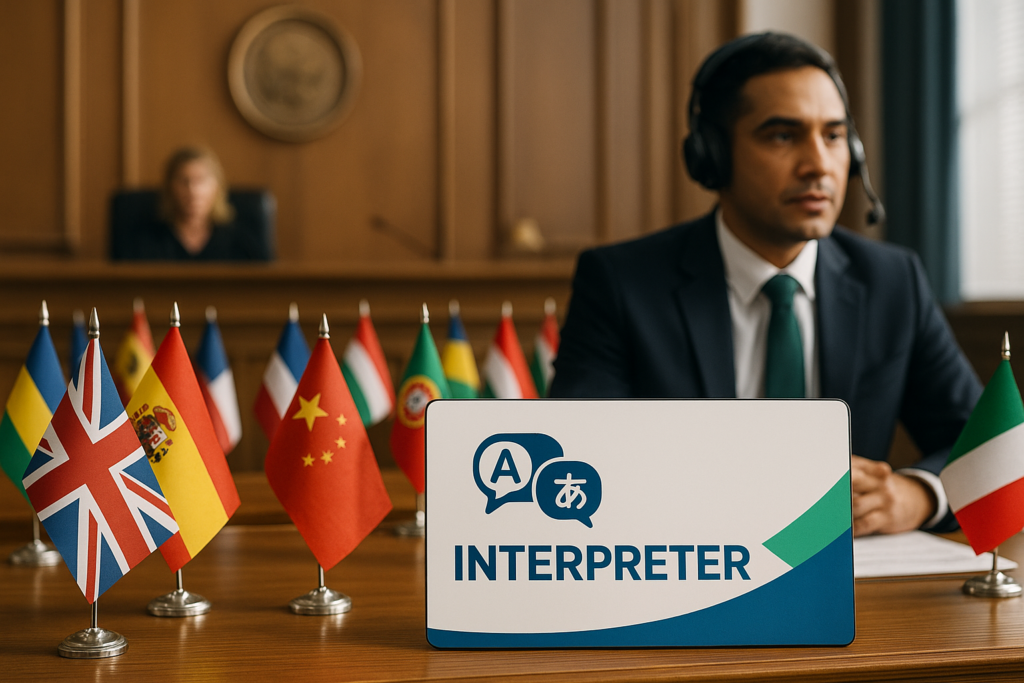The courtroom should be a place of clarity, fairness, and due process. Yet for many individuals in the UK legal system, particularly those with limited English proficiency, access to justice can be compromised by one critical element: language.
As professional linguists, we know that effective communication is not a luxury but a legal right. But recent findings from the House of Lords Public Services Committee have raised serious concerns about the state of interpreting in UK courts. Their report, Lost in Translation, paints a troubling picture of understaffed interpreter pools, underpaid professionals, and a justice system at risk of leaving people behind.
Let’s break down what’s going wrong – and what needs to change.
The Crisis in Court Interpreting
According to the report, the UK faces a shortage of qualified court interpreters, many of whom have left the profession due to poor pay, limited support, and inconsistent working conditions.
Interpreters are expected to operate in high-pressure environments, often dealing with complex legal terminology, emotionally charged testimonies, and fast-paced dialogue – yet many are not afforded the professional status or compensation they deserve.
In some cases, underqualified or inexperienced interpreters are sent into courtrooms. The result? Miscommunication, misunderstandings, and in the worst instances, miscarriages of justice.
Why It Matters
Court interpretation isn’t just about words; it’s about meaning, nuance, and legal consequence. Misinterpreted testimony can alter verdicts. A missed detail could mean someone is wrongly convicted or unjustly acquitted.
For victims, defendants, and witnesses who rely on interpreters, the interpreter is their lifeline – their voice in the legal system.
And let’s not forget: the UK is a linguistically diverse nation. Over 4 million people speak a main language other than English at home. The need for reliable, accurate human interpretation has never been more vital.
What Needs to Change?
The Lords report calls for:
-
Better pay and recognition for interpreters
-
More rigorous vetting and training to ensure only qualified professionals enter the courtroom
-
Improved oversight of interpreting contracts, many of which are outsourced to large agencies
-
A renewed commitment to language access as a pillar of justice
At Translate Hive, we agree wholeheartedly. Human court interpreters are not optional; they are essential. No algorithm or app can replace the ethical judgment, cultural sensitivity, and on-the-spot decision-making required in a courtroom.
The Translate Hive Perspective
We believe professional interpreters should be treated as the specialists they are – with fair compensation, respect, and continual professional development.
We also encourage those in the legal sector to work directly with trusted language service providers who prioritise accuracy, ethics, and quality assurance, rather than relying solely on lowest bid outsourcing.
If you’re involved in the legal system, whether as a solicitor, barrister, caseworker, or court administrator, and you’re unsure about how to find qualified interpreters, we’re here to help.
Final Thought
Language should never be a barrier to justice.
If we want a fairer legal system, we must start by listening – and that means ensuring everyone has a voice that’s heard, understood, and respected.
Need a qualified court interpreter or legal translation expert?
Get in touch with us today here and let’s make every word count.
